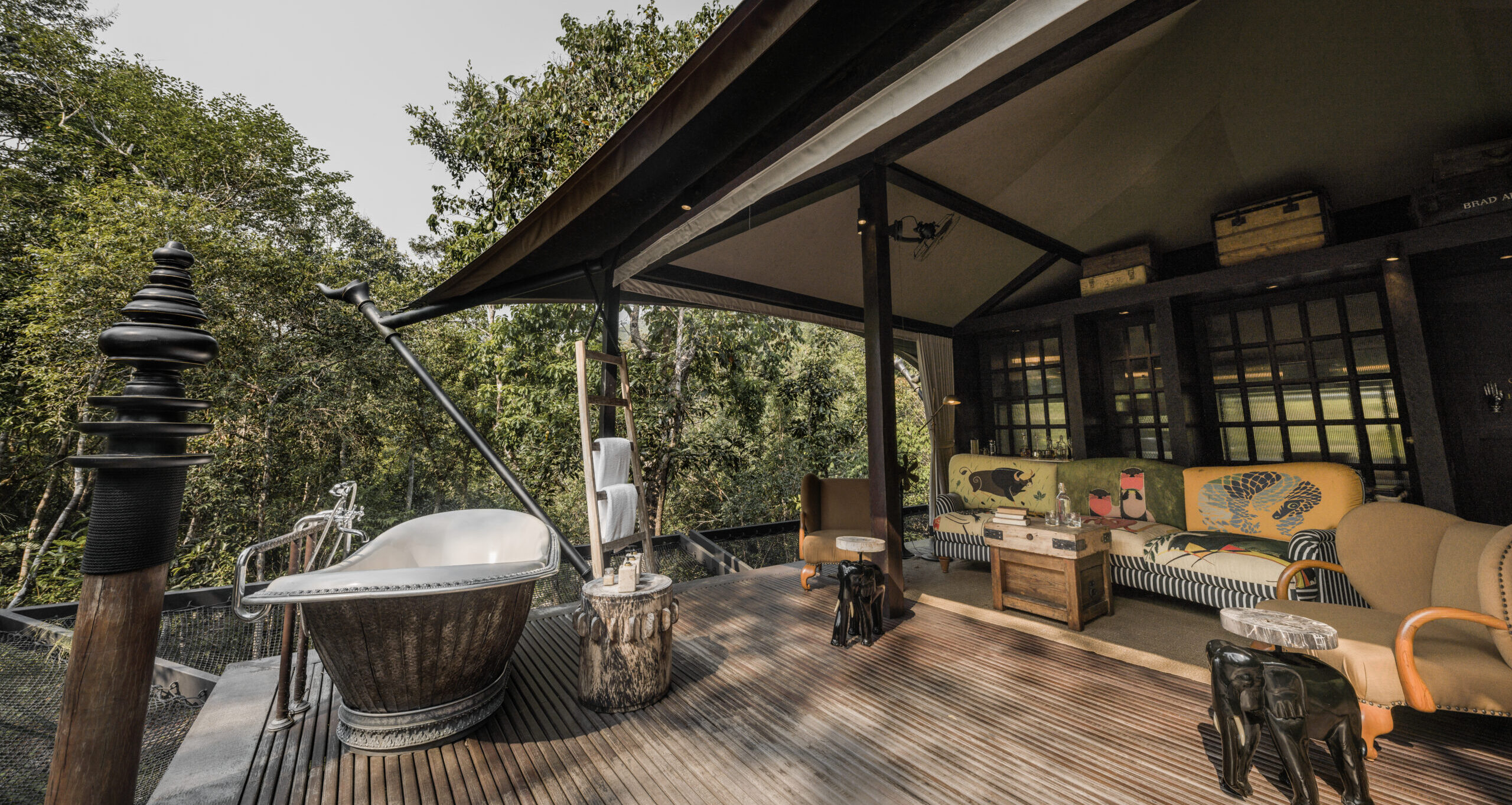From anti-poaching patrols to farming and foraging, Jason Friedman, director of product and development for Shinta Mani Hotels, speaks to Globetrender about how Shinta Mani Wild places conservation, self-sufficiency and job creation at the heart of its luxury hospitality experience.
What is Shinta Mani Wild? What is the guest experience like?
Shinta Mani Wild is a luxury, tented camp deep in the jungles of the Cardamom Mountains, complete with a 400-metre zip line arrival over the forest canopy, river and waterfalls. (There are 14 one-bedroom and one two-bedroom tents and rates start from US$950 per person per night.)
This all-inclusive, minimum three-night adventure will allow guests over the age of ten to intimately experience the front lines of conservation, as guests participate in our anti-poaching patrols while learning about this incredible forest.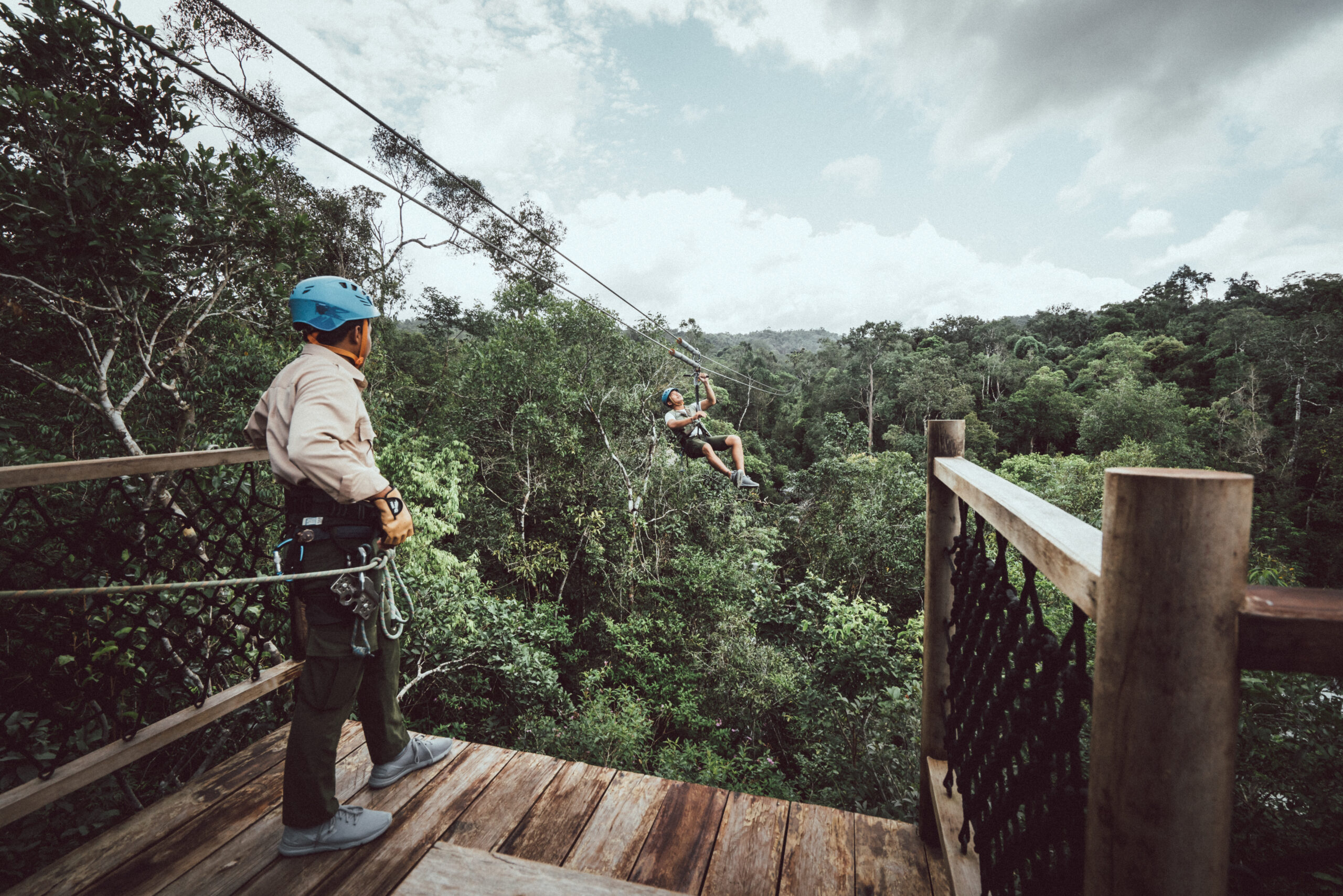 Guests can traverse secret estuary backwaters on luxurious six-metre pontoon-style boats designed by founder, designer and architect Bill Bensley – so naturally they each have a fully-equipped bar and a top deck with daybed and sun loungers. They can drop anchor wherever they please, whether to explore the mangroves by kayak or enjoy a wild barbecue of freshly caught crab prepared by their on-board Bensley Butler.
Guests can traverse secret estuary backwaters on luxurious six-metre pontoon-style boats designed by founder, designer and architect Bill Bensley – so naturally they each have a fully-equipped bar and a top deck with daybed and sun loungers. They can drop anchor wherever they please, whether to explore the mangroves by kayak or enjoy a wild barbecue of freshly caught crab prepared by their on-board Bensley Butler.
Resident botanists and naturalists will guide guests through the forest on their daily forage so they can learn how to identify krasang, mangoseen, angkeadei and Moringa. The head chef will then teach guests how to transform indigenous Cambodian herbs and plants into flavour-packed dishes around a campfire.
Our Khmer Tonics spa offers chemical-free treatments using medicinal plants foraged from the rainforest and bottled onsite. The spa’s two treatment rooms are set amid dramatic natural boulders but the river takes centre stage – guests can have a river-stone foot massage while soaking in a waterfall pool.
Other activities include tenkara, a meditative form of Japanese catch-and-release fly fishing; picnics, all thoughtfully prepared by highly skilled Bensley Butlers; and access to our WW2 Land Rover which has been given the Bensley treatment to transform it into a mobile cocktail bar. 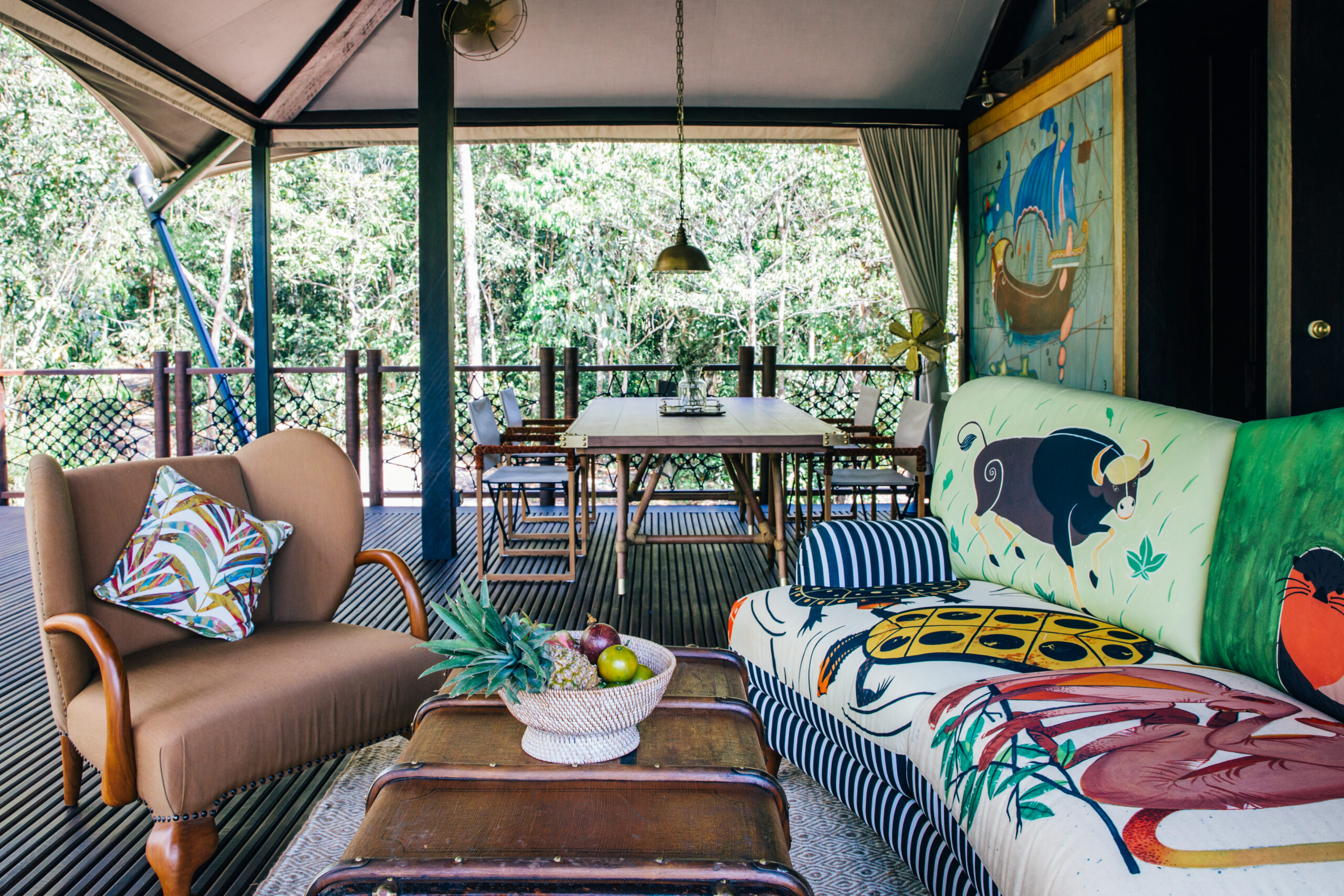
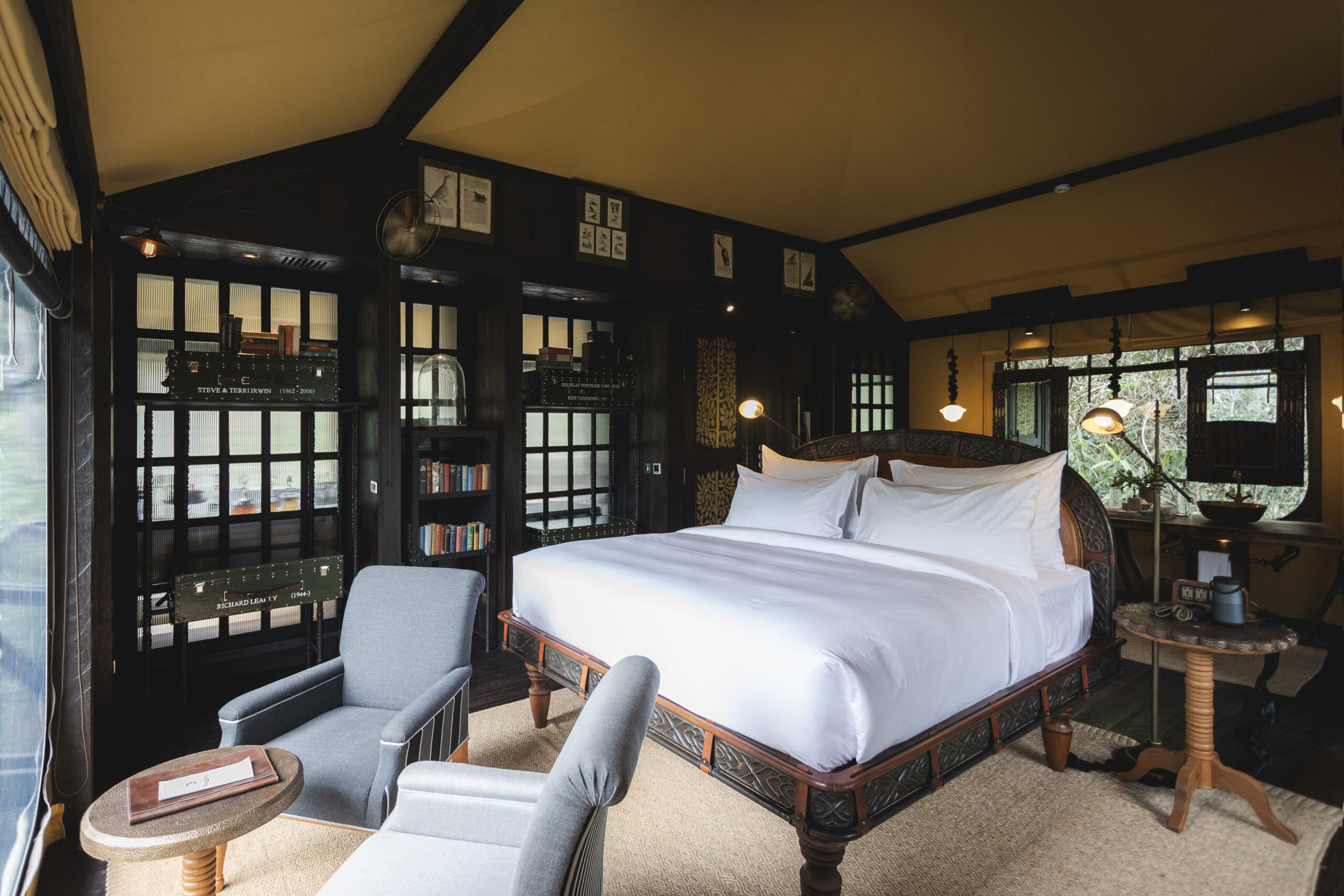
What is unique about the property in terms of its eco credentials as a “low impact” retreat?
The brainchild of architect, interior designer, landscape architect and most of all conservationist Bill Bensley, it all started with a sale of government land designated for logging.
Along with Sokoun Chanpreda (founder of the Shinta Mani Foundation and its group of boutique hotels dedicated to empowering Cambodians) Bill purchased some 875,000 trees, 4.5km of wild river and three magnificent waterfalls over 865 acres, saving it from becoming a titanium mine.
The property exists to protect our 800-acre private nature sanctuary, as well as the neighbouring forested
lands. From not using single-use plastics, to bottling our own water and our commitment to source all of our produce locally – it’s all about sustainability and conservation.
We have our own ranger station with a team of armed rangers that are on daily anti-poaching patrols. We not only want to protect this land but make it better than when we found it.
In order to protect this corridor of rainforest, which is the size of New York’s Central Park, from poaching and logging – in what is now the biggest and last great forest in South East Asia – a high-yield, low-impact camp was created. Our main mission is to protect the forest and its inhabitants through a collaboration with the Shinta Mani Foundation and the Wildlife Alliance NGO.
Shinta Mani Wild was built completely by people from the area, with local materials, and without cutting down trees. It offers guests forest-foraged foods and homegrown vegetables – and the little food brought in from beyond comes in a plastic-free supply chain, the first in Asia.
We also have a water bottling plant to avoid plastic coming to the area, as well as a rule of amenities on request only. We are almost completely off the grid, thanks to solar panels.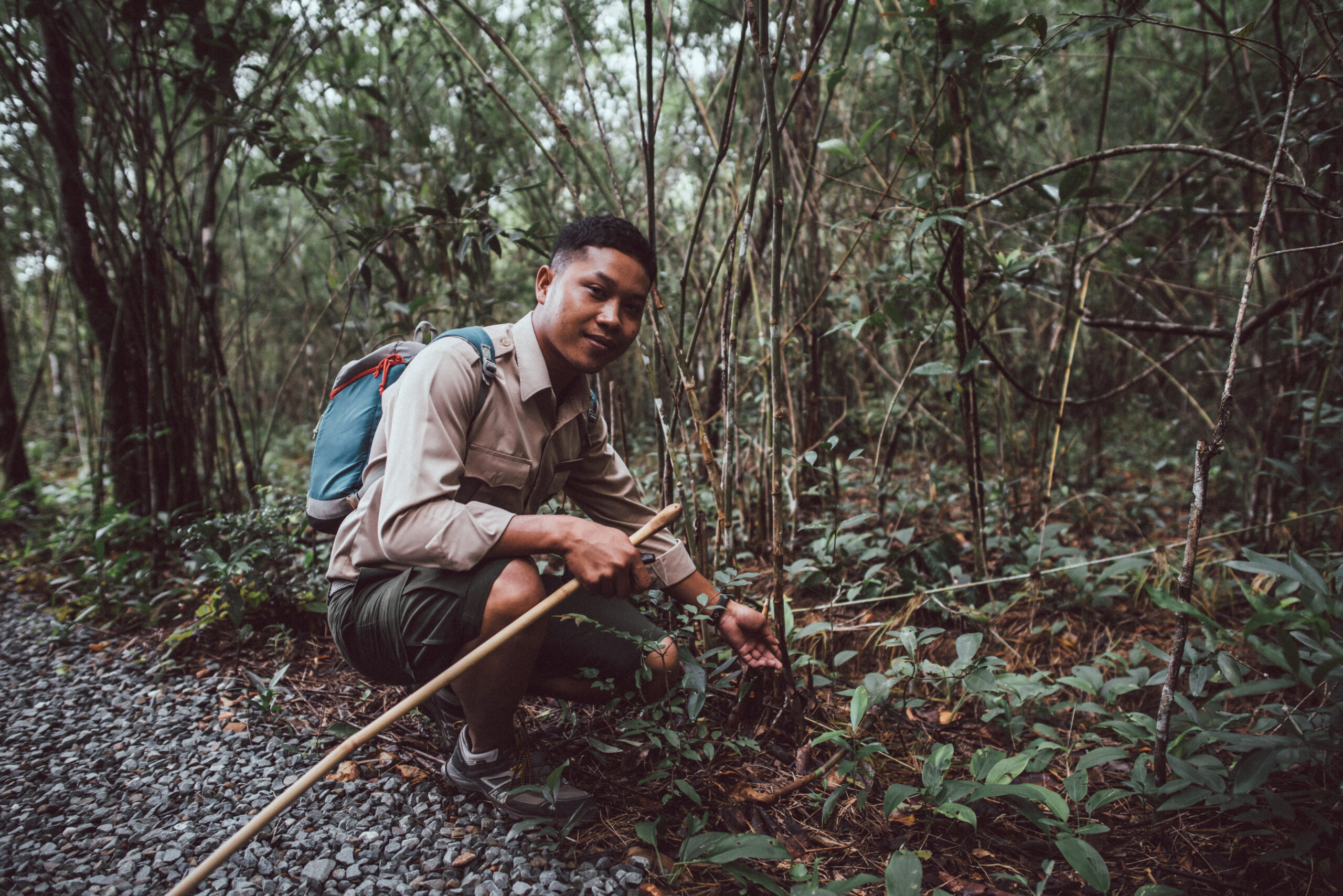
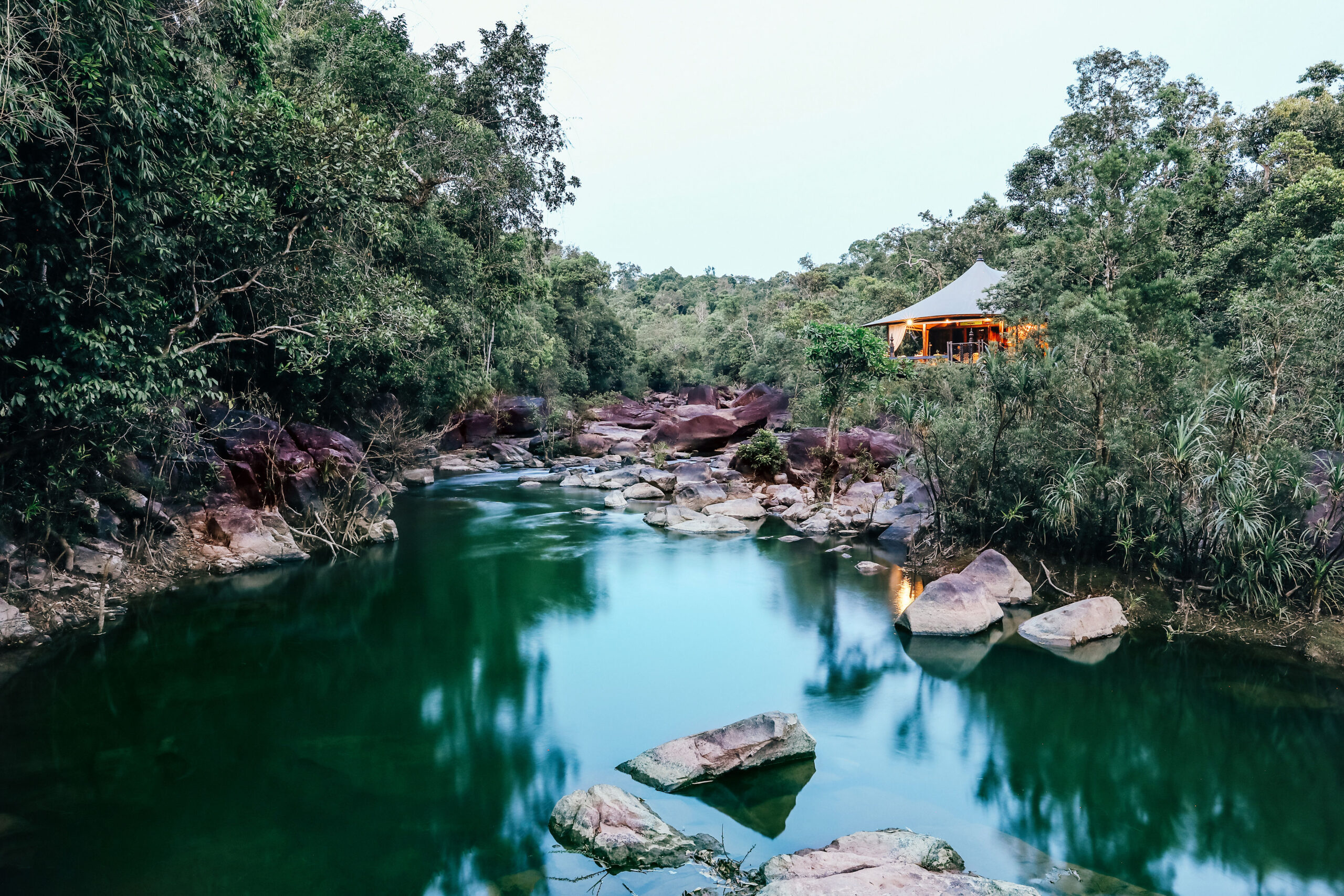

What has been the effect of the pandemic on your operations?
During the pandemic, while borders remain closed, Shinta Mani Wild has become hugely popular with
Cambodian guests wanting an exclusive luxury experience.
We have managed to keep the property open through most of the pandemic and been very fortunate to have regular buy-outs from the high-end domestic market during this period.
Their support has allowed us to continue to protect the forest, and also provide work for our Shinta Mani
Foundation hoteliers so we are ticking off the boxes of profitability, wildlife conservation, social responsibility and empowerment.
That said, when the hotel was closed and had no business, we continued to pay for the cost of the ranger patrols as this is critically important and must continue. During this time we also created an organic farm and built a rustic cooking school.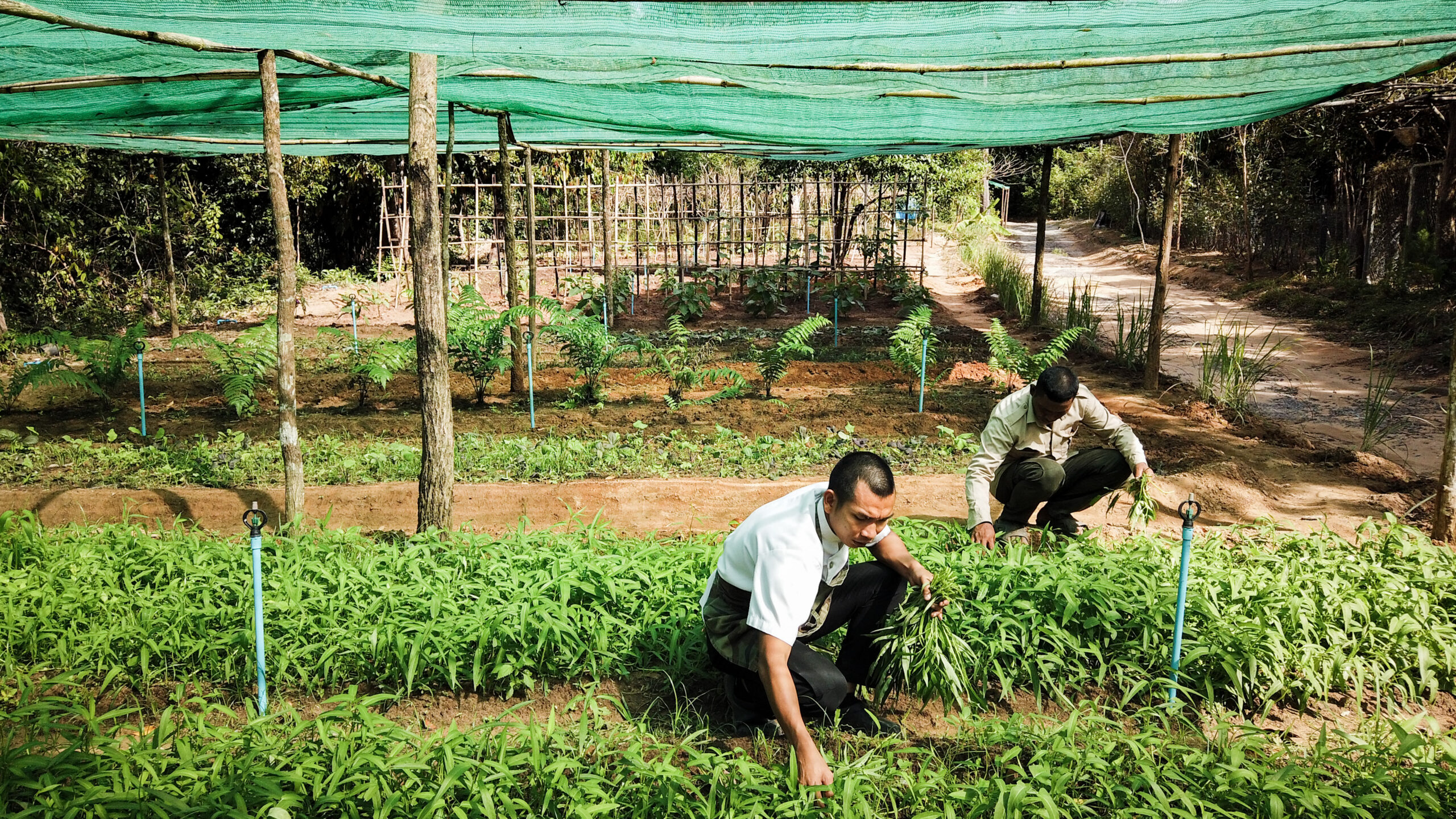 The farm has a free-range chicken run to supply eggs, as well as designated vegetable and herb gardens, a cocktail and spa garden, and a plant nursery. Once the farm is well established, any surplus from harvests will be used in the Bensley Collection Siem Reap properties or packaged for sale. There will also be dedicated composting barn for kitchen waste management.
The farm has a free-range chicken run to supply eggs, as well as designated vegetable and herb gardens, a cocktail and spa garden, and a plant nursery. Once the farm is well established, any surplus from harvests will be used in the Bensley Collection Siem Reap properties or packaged for sale. There will also be dedicated composting barn for kitchen waste management.
No chemicals or pesticides are used in the farm and marigolds have been planted between crops, creating a picturesque and effective insect repellent.
The cooking sala experience begins with guests zip lining over the river and then foraging in the forest for one to two hours. On arrival they will be served refreshments before collecting more ingredients from the adjacent organic farm before using all ingredients to prepare three delicious dishes, which they will then enjoy in the dining section of the sala.
With a fully vaccinated team we look forward to when borders reopen so we can welcome back our international guests. 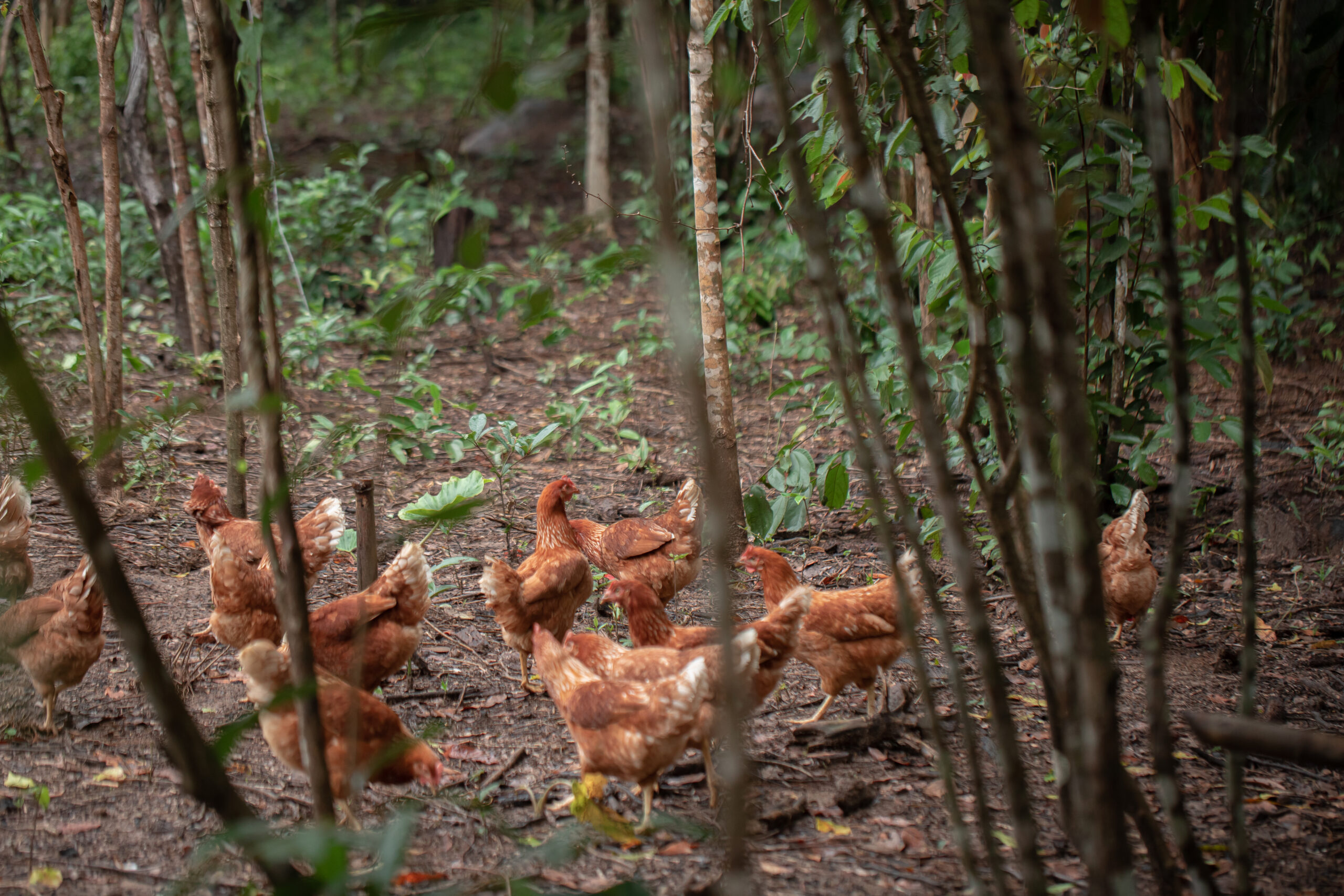
How do you work with the Wildlife Alliance to protect local wildlife?
Wildlife Alliance rangers patrol 866,930 hectares of tropical rainforest, working hand-in-hand with the Forestry Administration. It has played a critical role, employing rangers across seven ranger stations, which protect approximately two million acres of land.
Beyond this, the Wildlife Alliance has created alternative livelihoods for five thousand people, who previously relied on slash-and-burn farming and wildlife trafficking as a means of survival. Their efforts, which are extremely multi-faceted, have been invaluable in slowing the destruction of the Southern Cardamom forests.
The anti-poaching patrols are a core experience for our guests and are one of the highlights of staying at Shinta Mani Wild. A statistics board at the camp shows the number of various items confiscated and animals saved and is updated daily.
Funded by Shinta Mani, the camp’s ranger station enables the nonprofit Wildlife Alliance to carry out vital conservation work in the area, including protecting animals from poaching, removing snares and preventing illegal logging.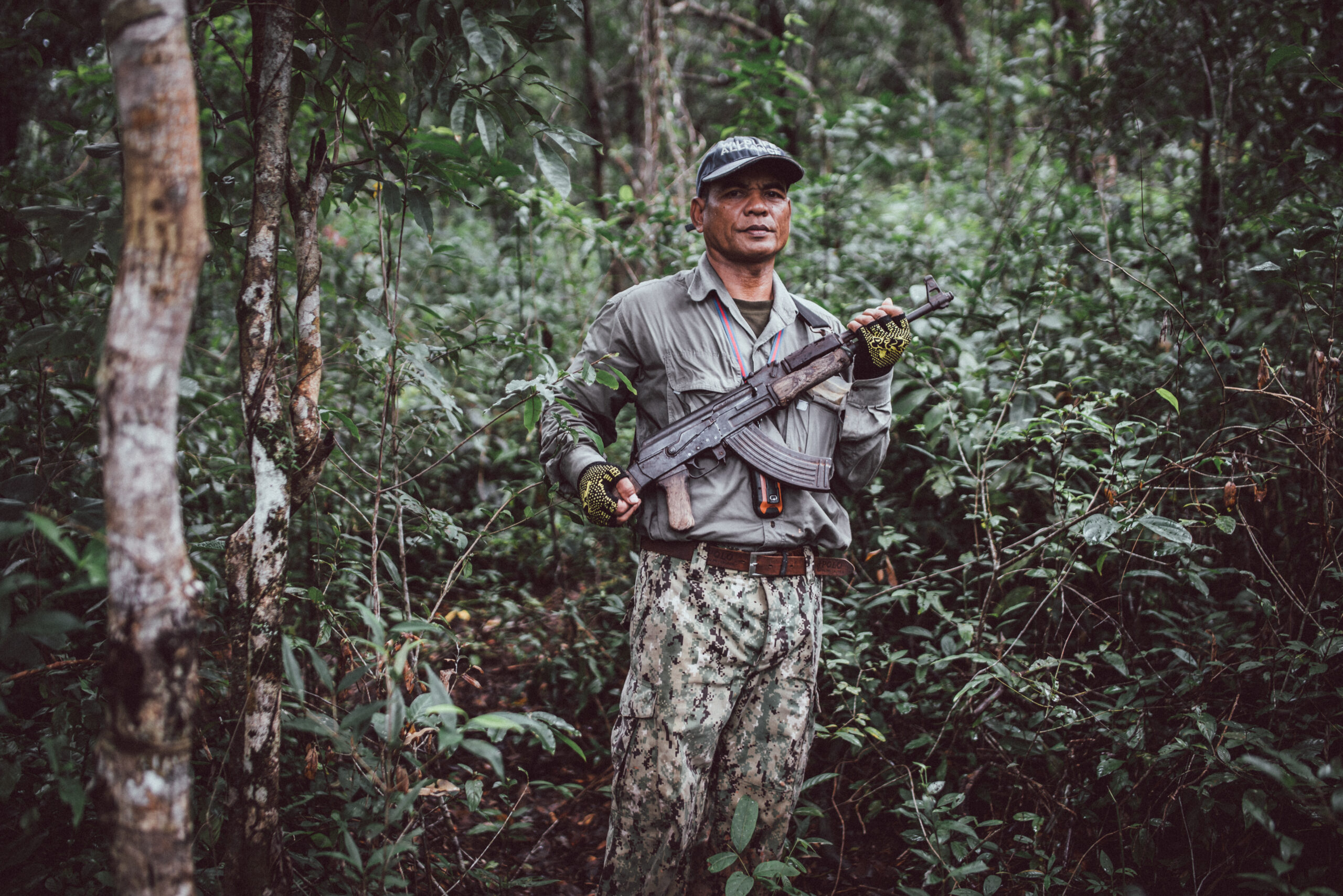
How have you been supporting these efforts during the tourism downturn?
We have made a commitment to continuing to finance the Wildlife Alliance patrols even during the periods where we have had to close the property.
Bill Bensley and his team have worked tirelessly to support the Wildlife Alliance Rangers at Shinta Mani Wild and continue to raise funds to support their critical work at the front line.
In 2021 Bensley created a range of trendy one-off bejewelled upcycled denim jackets which sell at US$500 each with all proceeds going to Wildlife Alliance. These pair nicely with the “trashion” bracelets refashioned out of confiscated snares. Bill also collaborated with Kate McCoy, an Australian gemologist, to create a collection of jewellery inspired by the forest and nature at Shinta Mani Wild.
In 2021 we held our first online fundraiser selling the Bensley designed jackets and jungle safari shirts, and Bill has recently started selling his amazing artworks. He has opened a gallery at his studios in Bangkok and also sells his art (both originals and prints) online, making it available globally, with all proceeds going to Wildlife Alliance.
What would be the situation without your anti-poaching patrols?
The situation would become a disaster as the pandemic has created very harsh conditions for people
which drives more poaching. This increased poaching puts additional pressure on the land and makes
the anti-poaching patrols even more important. We are the front lines of conservation – without us this
forest and its inhabitants would be gone.
Some of Cambodia – and the world’s – most endangered species still call the Cardamom mountains home, including 54 animals on the International Union for Conservation of Nature’s (IUCN) Red List.
As the forest cover disappears, so does the wildlife. It will take major conservancy of the evergreen forest for these fabulous residents to thrive again, but that is the goal at Shinta Mani Wild. We cannot, must not and will not give up on this important work to protect the forest and wildlife.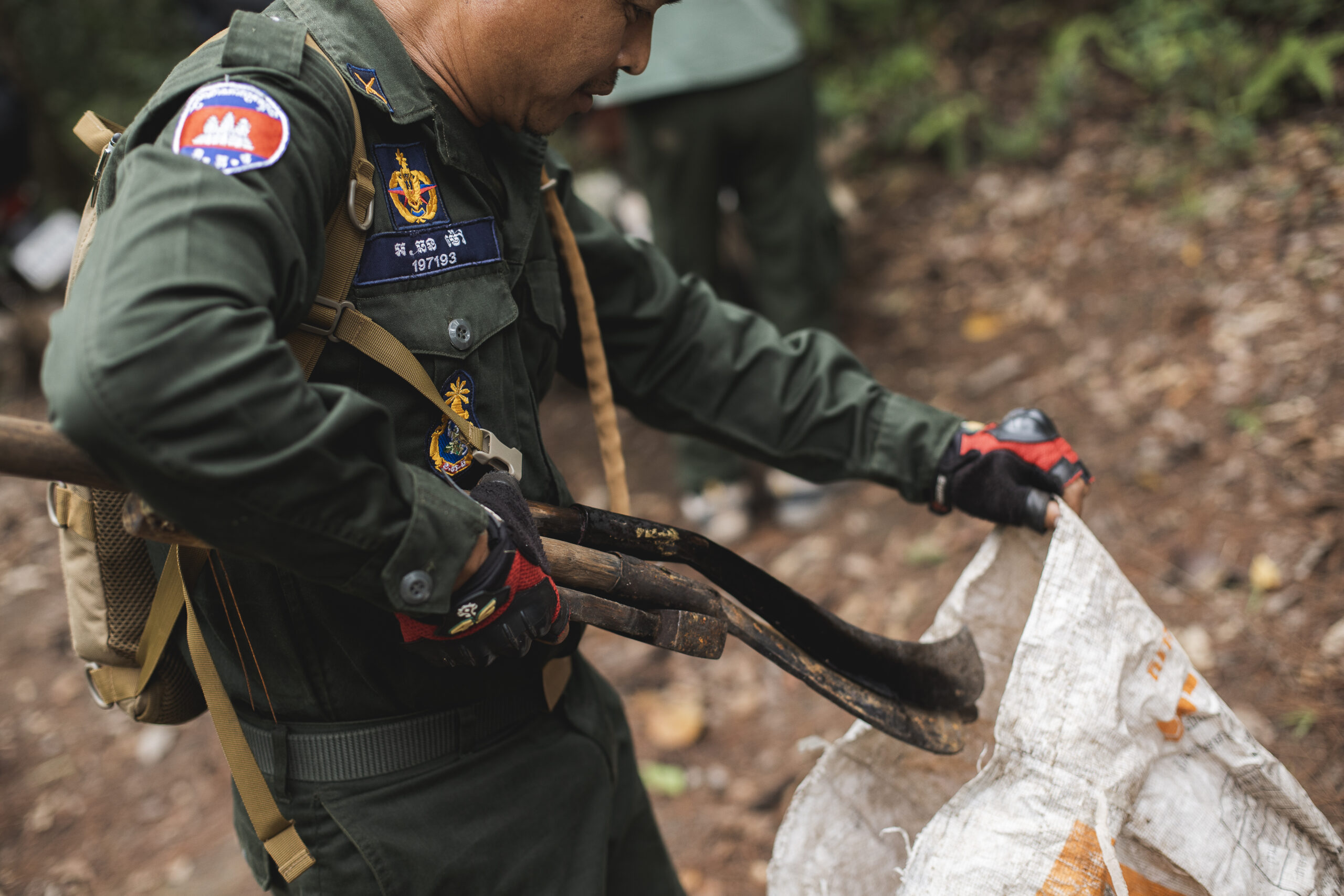
What kinds of endangered animals live in the Cambodian rainforest?
Everything from tigers and Asian elephants to sun bears, pangolins, civet cats, clouded leopards, yellow-cheeked gibbons, vultures, giant freshwater stingrays and Siamese crocodiles.
Can tourism really directly help biodiversity and conservation?
Tourism is integral to conservation efforts. Our high-yield, low-volume model stresses minimum impact on the environment while maximizing conservation and protection work. It is our high rates that allow us to have the funds to finance the forest protection efforts along with financing university students to do field research on our property.
Without tourism these places would not be protected. Tourism also provides for jobs in an area where there are few opportunities. These jobs mean fewer people poaching, resulting in a healthier ecosystem.
Without the tourism which Shinta Mani Wild brought to the Cardamoms, there would be no funding for the Wildlife Alliance to work there. The organisation is essential to the conservation and protection of the Cardamoms, prosecuting poachers and loggers, but also helping to reintroduce key species, and do research on the flora and fauna which exists there – and is slowly returning as it becomes safer.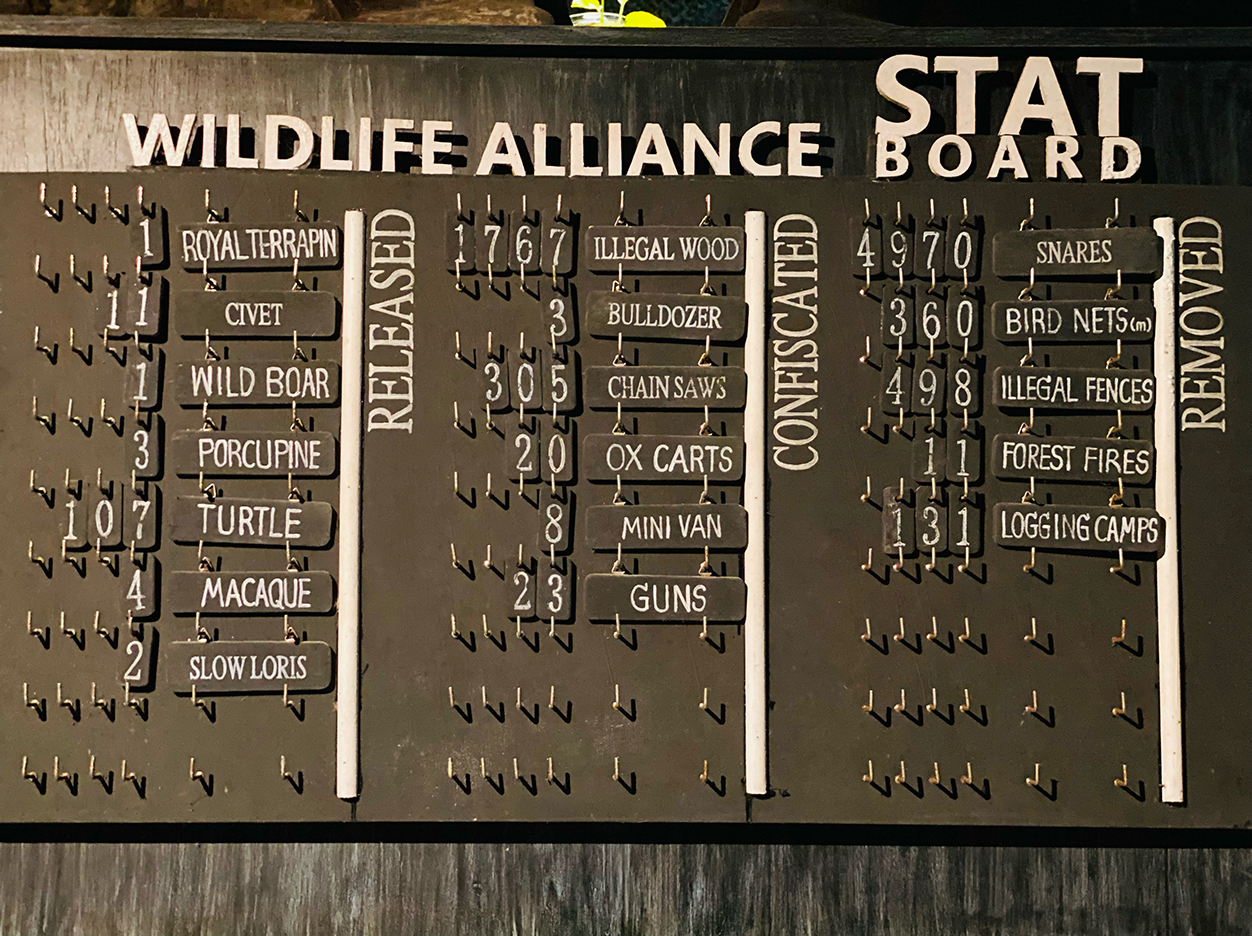
What is Bensley Collection’s goals for the future in terms of planet-friendly hospitality?
To keep doing what we are doing, think globally and act locally to protect, preserve and maintain the
environments in which we build and operate hotels. We are also looking into becoming one of the first plant-based luxury boutique hotel brands in the world.

